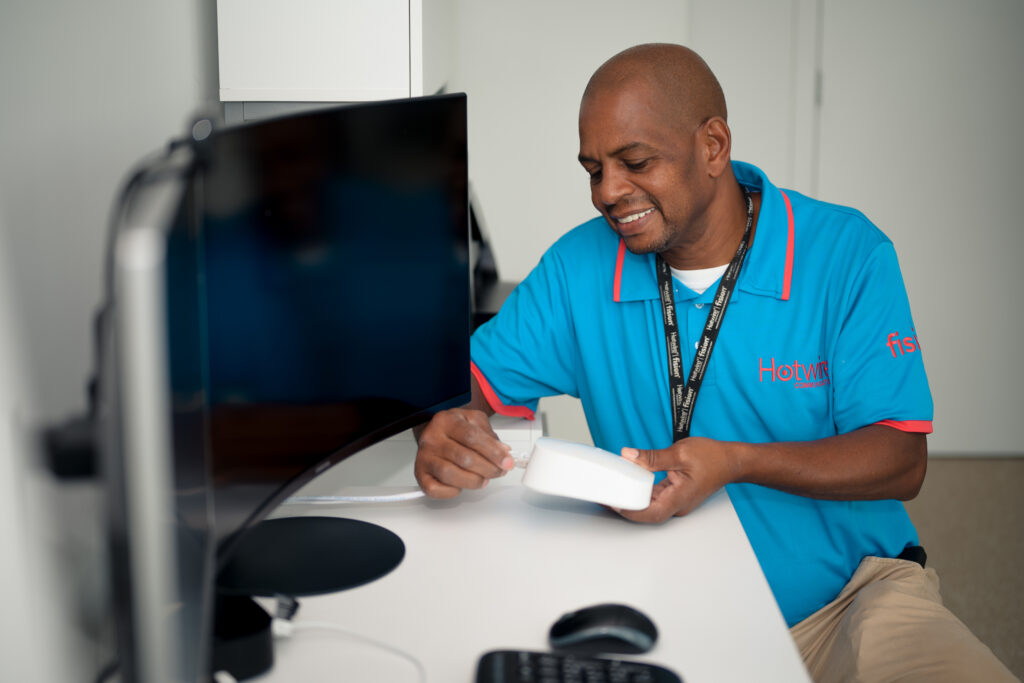
Hotwire Bringing AI Into the Field
By Cathy Applefeld Olson
“Sometimes a company can get caught up chasing a technology and needing to find a home for it. We started with the business need.”
AI has seized the attention of the industry. Hotwire Communications’ approach to adopting it, as explained by VP of customer experience and process operations Matt Wilson, is a success story that foresees robust evolution for the company.
“We are very committed to innovation, and innovation that always links back to our strategy—to differentiate on quality, to offer white glove service, to have disruptive technology to help our people have a better business experience,” Wilson says. “That guides what we are going to deploy.”
To that end, Wilson and the Hotwire operations and customer experience teams started down the line with TechSee to de ploy visual AI—artificial intelligence that teaches machines to make sense of images and visual data the same way people do—to aid customers installing equipment.
Quickly, they realized they had a more immediate use case: using the AI to aid field technicians with complex installs that require more than 15 steps of quality control ranging from meter reading to light levels. Traditionally, technicians were capturing photos of each step, sending them back and forth to determine whether the results were acceptable, and the next steps.
“This process was manual-intensive 100 percent of the time,” Wilson says. “They were all sending photos back and forth and filling out forms before. Now with TechSee, we turned these 15 steps that were about capturing pictures to real-time walk-throughs, real-time pass/fail on each step, so that by the time the technician gets to the end of the list, he knows at that moment if he passed the quality check. This stuck out as being a really powerful technology to put in employees’ hands, so that they could get a real-time pass or fail on what they’re doing.”
In the three months since deployment, Wilson says the team has reported a 15% faster workflow. “Our back office no longer needs to manually review work orders for these types of installs,” he says. Feedback from employee satisfaction is also strong. “They feel like we are giving them the best tool possible to be successful,” he says.
Hotwire will begin using AI for the customer installs and troubleshooting next year, and begin to bring generative AI into the equation. “For generative AI we’re focused on, how do we make the employee that much more successful and keep our reputation strong as we grow,” Wilson says. For network operations he envisions using it to kick off tasks and recap notes about incidents so everyone involved sees the same information. For customer service, he says it will aid in the different sources a customer service representative might need to reference during a call or task.
“We’re trying to create a ChatGPT-style experience that gives the agent an answer on the fly instead of them going through a bunch of articles and all that hang time on the phone, and give them the immediate conversational question and answer back to the agent so they can help the customer quickly.” As AI evolves at warp speed, Wilson says it’s incumbent on companies to keep up with the latest from vendor partners. “And as a business leader you have to cut between what is real AI disruption we should pay attention to and what’s the same old stuff with a different name,” he warns. “It’s easy to get caught up. You’ve got to be able to read the difference between the two.”